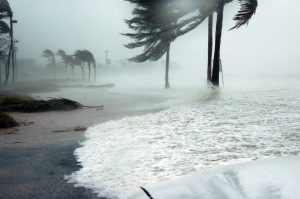Business Insurance Florida
There are many things that make Florida a great place to live. Sandy beaches, a growing economy, and Mild Winter Weather are at the top of the list why many people find their way to the Sunshine State. In addition, Florida is the third most populous state in the United States and it represents the fourth largest GDP of any state in the country. With all of these positives to the state of Florida comes an enormous amount of risk. Many of the risks the state of Florida faces are unique to the state and many are risks that many other regions of the country face. The fact the Florida faces many of these risks complicates the business community within the state. Here are four types of risk that are important to consider when deciding to buy Business Insurance Florida.

Hurricanes
Hurricane Season begins each year around the end of June or the beginning of July. It typically last well into September and early October. September is typically the strongest month. 2017 contained the most damage throughout the state of Florida when Category 4 Hurricane Irma struck the the Atlantic Coast. Because of the frequency and severity of hurricanes in the state of Florida, it is important for businesses to speak with their insurance agent about properly insuring their business against hurricanes.

Flooding
Flood Insurance is equally important to secure for businesses in Florida. An overwhelming majority of the state is located in an area with some level of risk for floods and most people or businesses are not adequately insured to protect against the damages from floods. Many policyholders near the coast think damages from flooding caused by a hurricane will be covered by their homeowners insurance or by hurricane insurance, but in most cases that is not true. This is why it is important to find an independent insurance agent with whom you have a lot of trust. An experienced independent agent can help you determine what exact risks you face, the level of those risks, if there are any gaps in coverage, and where you may be able to go without coverage. This advice can be invaluable when your area faces a natural disaster.

The Sharing Economy
Because of the impact of the tourism industry in the state of Florida, the sharing economy in the state is strong. Many people who are operating in the sharing economy either do not secure proper insurance or do not secure enough insurance.
Many people think their covered when they definitely are not. For people who work for the ride share companies of Lyft or Uber, their personal car insurance policies do not cover liability damages when they cause an accident while driving for a ridesharing business. Some car insurance policies will still pay for the damages to your car, but not the liability you face to third parties who are hurt by the accident a driver caused.
Florida also has many home owners who use homesharing platforms AirBNB or VRBO. The fact that the tourism industry is so strong within the state of Florida causes people to use these services more than in other parts of the country. Additional insurance is needed if a homeowner uses these services to make additional income off of their home.
Volatile Workers Compensation System
The Workers Compensation Market in Florida has been extremely volatile for a number of years. Rates in the market trended positive in 2018 when the Florida Office of Insurance Regulation announced 13.8 percent declines in the pure premium rate for businesses in 2019. This decline will save the business community throughout the state more than $400 million dollars compared to 2018. These declines are in addition to declines in 2018 after steep increases in 2017. The volatility in the market started in 2016 when the Supreme Court in the state ruled on two court cases, Castellanos v. Next Door Company and Westphal v. City of St. Petersburg.
The Castellanos Ruling invalidated a previous decision from a case in 2009 that limited an injured worker’s ability to recover a reasonable amount of money for attorney’s fees. After this ruling judges no longer had to stick to a fee schedule when awarding damages in workers compensation cases. Carriers anticipated this to drastically increase what they were required to pay in losses.
The Westphal Ruling dealt with the statutory limitation on temporary total disability benefits. This ruling increased the time period an injured worker can collect partial salary benefits from workers compensation claims. The time period employees could collect these benefits increased from 104 weeks to 260 weeks. This additional 156 weeks causes carriers to prepare for these potential increases in payouts.
In the second half of 2017 saw the bankruptcy of Guarantee Insurance Company. Guarantee Insurance Company was the state provider for workers compensation in the state of Florida. “Guarantee had about 8,600 active policies in 31 states and the District of Columbia on Nov. 13, Moore said. Of those, 1,250 were in Florida”. This left more then a thousand businesses in the state of Florida scrambling to find coverage on short notice.
